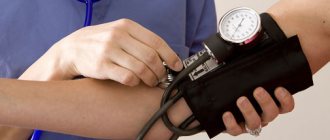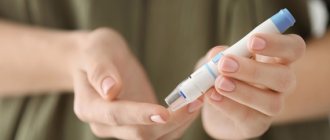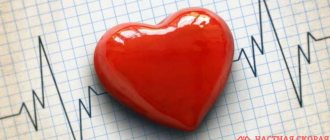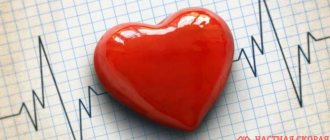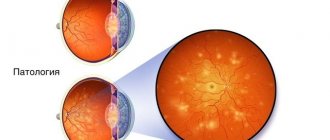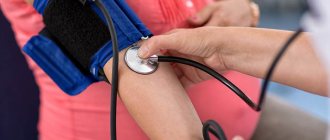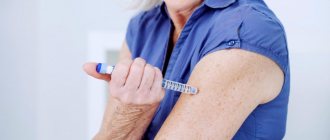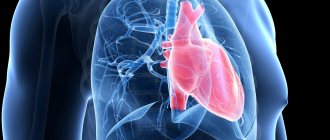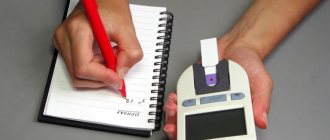Home>Articles>Alcohol and diabetes
quick menu (hide)
- The effect of alcohol on a diabetic
- Types of diabetes
- The effect of various alcohols on diabetic patients
- Contraindications for use
Until recently, when a person was diagnosed with diabetes, doctors strongly recommended that he give up all bad habits. It was believed that drinking alcohol if you have diabetes is unacceptable, because it can aggravate the course of the disease. However, today doctors have ceased to be categorical about this, and believe that a diabetic can drink a small amount of alcohol without harm to health. But it should be remembered that before relaxing with a glass of alcohol, a person with a history of type 1 or type 2 diabetes mellitus must consult with their doctor so that he can select the safest drink and adjust the dose depending on the treatment regimen.
Content:
- Features of the disease
- Alcohol and type 2 diabetes
- Dangerous symptoms of delayed hypoglycemia
- Is it possible to drink alcohol if you have diabetes 4.1 Dry wine 4.2 Vodka 4.3 Beer
- Prohibited types of alcohol
- How to drink correctly if you have non-insulin-dependent diabetes
- When you should absolutely not drink if you have diabetes
The intake of “hot” drinks should always be within reasonable limits.
It is especially important to remember this principle for people who have chronic diseases. Let's try to figure it out: if diabetes is diagnosed, is alcohol allowed or not? Doctors' opinions on this matter differ slightly.
Some believe that ethanol should not be used under any circumstances in this condition, while others give patients relief. In fact, everything depends on the unique characteristics of the patient’s body, indicators of his health status, and the therapy used.
Features of the disease
Before we figure out whether it’s possible to drink alcohol if you have diabetes, let’s describe the disease itself. It is a serious metabolic disorder manifested by chronic hyperglycemia. The latter is the result of a disruption in the interaction of tissue cells with insulin.
Glucose is a source of energy in the human body. Penetrating into the gastrointestinal tract, complex carbohydrates are metabolized and transformed into monosaccharides, which go directly into the bloodstream. They cannot immediately penetrate cells because their molecules are too large. To make this happen, insulin is involved in the process. This is a peptide hormone produced by the pancreas. It has a multifaceted effect on metabolic reactions in almost all tissues.
In the non-insulin-dependent form, insulin deficiency is not observed, but the cells lose sensitivity to it. Because of this, glucose cannot directly penetrate into tissues and provide the body with the required energy charge. As a result, tissues are damaged due to increased blood sugar levels, metabolic processes are disrupted, and there is a lack of energy.
Alcohol and type 2 diabetes
The disease leads to damage to blood vessels:
- kidney;
- liver;
- brain;
- eye;
- myocardium.
For this reason, diabetics are not recommended to drink alcohol-containing drinks. You also need to remember that alcohol can lower blood sugar levels. It would seem that there is nothing wrong with this - after all, this is what people with such a diagnosis need. But it's not that simple. The fact is that hypoglycemia usually does not occur immediately, but after some period of time. Sometimes more than 20 hours pass before the sugar-lowering effect appears.
This delayed effect of alcohol in type 2 diabetes is fraught with danger. After all, surges in blood sugar can be unpredictable, which means that the likelihood of a deterioration in the patient’s physical condition increases.
Alcohol depletes the compensatory capabilities of the human body. It promotes the breakdown of large amounts of glycogen, but does not allow new reserves to form.
What to do if things get bad?
We have already found out that alcohol and diabetes are poorly compatible concepts. Therefore, if you have taken any type of alcoholic drink and feel unwell, call an ambulance immediately. You should not follow someone’s advice; it is better to wait for a specialist to arrive. If the doctor insists on hospitalization, do not refuse it. In any case, it won’t make things worse, but it will be possible to avoid serious problems if you provide timely assistance.
What happens when a type I diabetic gets drunk, even if he has taken a small dose? Alcohol molecules can significantly reduce the absorption of carbohydrates into the blood from the intestinal tract. And the usual dose of insulin taken will very soon contribute to the breakdown of glucose. As a result, the amount of sugar in the blood will sharply decrease. This will lead to a hypoglycemic state. If proper assistance is not provided, the process may go further, and the patient will develop a hypoglycemic coma.
Under normal conditions, to help such a person, it is enough to drink sweet tea, eat a piece of sugar or candy. But he has ethanol in his intestines, which will not allow carbohydrates to be properly absorbed into the blood. Therefore, you should not think for a long time - you need to immediately call an ambulance.
To sum up the topic of compatibility between diabetes and alcohol, we can make a clear conclusion: if you have the disease, it would be best to abstain from alcohol. Even a positive experience with ethanol products will sooner or later cause health problems. It is much easier to prevent complications of this disease than to treat them later. Don't put your life in danger. Lead a healthy lifestyle.
The text was checked by expert doctors: Head of the socio-psychological service of the Alkoklinik MC, psychologist Yu.P. Baranova, L.A. Serova, a psychiatrist-narcologist.
CAN'T FIND THE ANSWER?
Consult a specialist
Or call: +7 (495) 798-30-80
Call! We work around the clock!
Dangerous symptoms of delayed hypoglycemia
It can be difficult to distinguish normal intoxication from hypoglycemia, because the symptoms of these conditions are similar. Typically, when there is a sharp drop in blood sugar, a diabetic is concerned about:
hand tremors (start to shake);- increased sweating;
- severe headaches;
- dizziness;
- vomit;
- frequent nausea;
- confusion;
- difficulties with orientation in space;
- speech impairment (becomes unclear and incoherent).
It is good if people who are close to a diabetic know about his diagnosis. Then, if his physical condition sharply deteriorates, they will be able to adequately respond to the situation and take first aid measures.
Features of taking medications
Alcohol can interact with hypoglycemic medications and affect their effectiveness. For example, in combination with clopramamide it causes a sharp deterioration in health with symptoms of acute intoxication.
In combination with metformin and thiazolidinediones, which reduce insulin resistance, ethanol increases the chemical load on the damaged liver.
If you are taking any hypoglycemic medications, you should avoid drinking vodka.
Vodka is prohibited while taking medications.
Is it possible to drink alcohol if you have diabetes?
Since the disease described is unpredictable, it is best to completely avoid drinks containing ethanol. If a person has at least one of the listed diagnoses, he is 100% prohibited from taking “hot” drinks:
nephropathy;- cirrhosis;
- encephalopathy;
- diabetic retinopathy.
It is permissible to use alcohol-containing compounds if the patient knows exactly how his body reacts to drinking and glycemia is under complete control.
In rare cases, you can drink alcohol if you have the following types of diabetes:
- quality wine;
- vodka.
Dry wine
It is the best alcohol-containing drink allowed for diabetics. But you can take it occasionally and no more than one glass (200-250 ml). High-quality natural wine products:
dilate blood vessels;- promote the elimination of toxins;
- enrich the body with useful microelements and amino acids;
- lower the level of bad cholesterol;
- make the negative impact of stress on overall health less pronounced.
It is very important that the sugar content in the drink is less than 5%.
Vodka
It is permissible to use up to 100 ml of vodka at one time. This is the maximum dose for a man who has non-insulin-dependent diabetes. For a woman, the established dosage is two times lower.
In this case, it is necessary to first determine the quality of the product. It should not contain chemical impurities, as they can cause negative changes in the functioning of internal organs.
You can drink vodka in the specified amount once a week.
Beer
This drink, which young people love so much, is best not used by diabetics at all. Despite the fact that it has a low degree, its glycemic index is off the charts. This means that beer contributes to a rapid increase in the concentration of glucose in the blood, and this is dangerous.
Rules for safe use
The main conditions for a diabetic to drink alcohol are:
- moderation. Do not exceed the permitted dose.
- normal sugar levels. A small amount of vodka is allowed only in the compensated stage of the disease.
Important! Stable hyperglycemia is the basis for complete abstinence from alcohol.
Drinking vodka if you have diabetes is allowed only in accordance with the rules:
- consult with the doctor with whom the patient is registered;
- do not exceed the permitted portion;
- do not drink the drink with juices, fruit drinks, soda and do not add them to vodka;
- exclude the possibility of drinking alcohol on an empty stomach;
- adjust the dosage of insulin and hypoglycemic medications before the feast;
- limit physical activity before the intended consumption of ethanol-containing drinks and during the feast;
- control glycemia (at least once every 90–120 minutes);
- choose your drink carefully; questionable (falsified) products should be discarded;
- bite tightly.
Suitable snacks include meals consisting of complex carbohydrates and proteins. Cereals and legumes promote partial absorption of harmful substances, and protein products will slow down the absorption of ethanol into the blood. Examples include:
Alcohol and the pancreas
- brown rice with vegetables and boiled chicken;
- cabbage stewed with turkey and red beans;
- boyar style buckwheat (with mushrooms and vegetables).
When drinking vodka, you must have with you:
- portable glucometer for monitoring glucose levels during and after an event accompanied by alcohol consumption;
- a prepared syringe with insulin (in case of increased blood glucose levels);
- a couple of pieces of sugar (to relieve possible hypoglycemia).
It is important to avoid drinking alcohol alone. When a diabetic crisis develops from an excessive amount of vodka or its dubious quality, the risk of being left without medical care increases.
How to drink correctly if you have non-insulin-dependent diabetes
Narcologists advise patients to adhere to certain rules that will sometimes allow them to relax with the help of “hot drinks” without causing harm to their health. This means recommendations:
Take alcohol with food, not on an empty stomach. Eat only those foods that are allowed for diabetes.- Drink only high-quality and proven alcohol. You cannot buy cheap wines, formulations with various additives and impurities, preservatives. Poor quality products often cause unpredictable reactions from the body.
- Don't drink before bed. This is associated with an increased risk of delayed hypoglycemia during nighttime sleep.
- Always carry medications with you that help quickly normalize your sugar levels.
- On the day of the feast, take glucose measurements according to the standard scheme, do not forget about their importance.
Following these tips will help minimize possible risks.
Main contraindications
In some cases, alcohol is not acceptable at all , and it is better not to experiment with it. Therefore they need to be listed separately.
- High risks of hypoglycemia.
- Kidney problems, especially nephropathy.
- Gout.
- High triglycerides under the influence of alcohol, which causes problems with fat metabolism.
- Cirrhosis and hepatitis.
- Use of the drug Metformin.
- Diabetic neuropathy.
It is important to monitor your diet at the time of drinking alcohol, before this moment and thereafter. You need to eat well, 3-5 times a day. It is also important that the food is varied . This measure allows you to minimize risks. However, in any case, you should be careful and carefully monitor your condition.
When you should absolutely not drink if you have diabetes
There are situations in which a diabetic must completely abstain from alcohol. Among them:
chronic pancreatitis;- gout;
- liver cirrhosis, hepatitis;
- pregnancy, breastfeeding period;
- ketonuria, acetonuria;
- detection of any of the complications of type 2 diabetes (cardiosclerosis, retinopathy, nephropathy, encephalopathy, etc.).
All diabetics should see a doctor regularly. They need to take responsibility for their health. By leading a healthy lifestyle, they will feel much better and avoid many problems.
